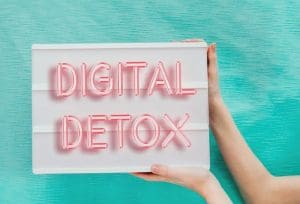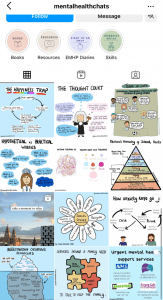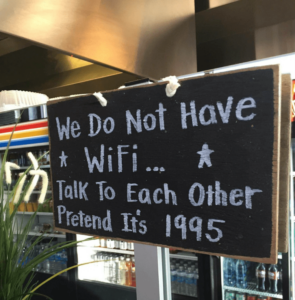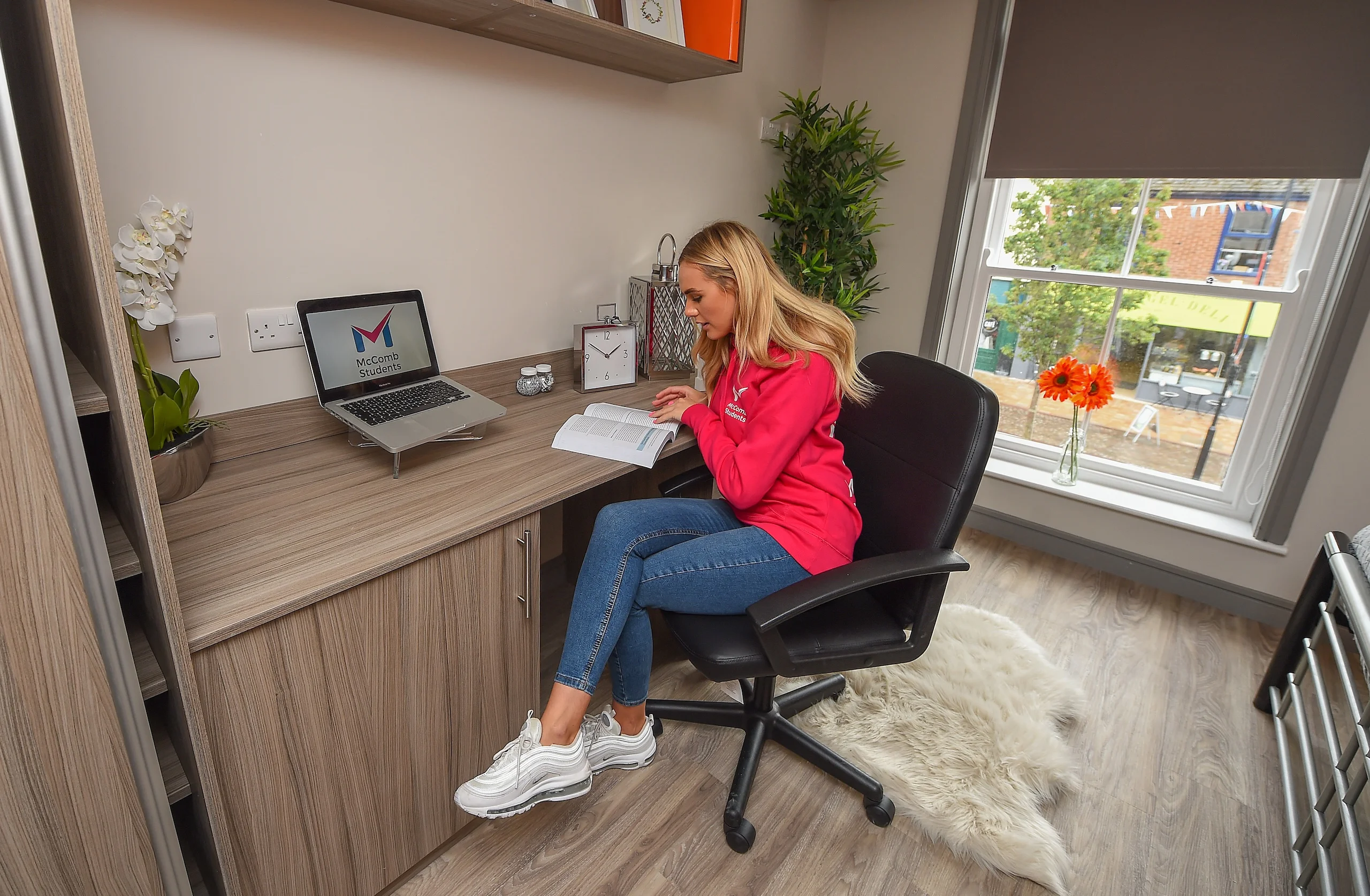How can a digital detox improve your mental health?
Ever heard of ‘nomophobia’? That’s the fear of being without your phone which is natural engrained in us as Millennials and Gen Z.
The correlation between increased social media usage and screen time and poor mental health have been highlighted by several studies linking excessive scrolling to depression, poor sleep and damaged spine and lungs thanks to the posture it promotes.
Writing assignments, online studying, watching Netflix, messaging friends, a quick scroll on TikTok that turns into an hour… It’s easy to see why screen-time is typically high while at university.
On average, the UK university student’s life satisfaction ranks low in comparison to the working adult. It’s for this reason we need to explore the factors influencing mental health in students.
We’ve identified many ways that technology influences mental health and included our top tips to help manage the impact.
Digital distractions
One minute you’re writing an assignment – the next, you find yourself mindlessly scrolling and wonder how you got there. Does this sound familiar?
We’re continually bombarded with messages and notifications – and this makes focusing nearly impossible. Even when we aren’t receiving messages, we are so used to the feeling of receiving them that we can’t stop picking up our phones and checking.
This behaviour can have a severe impact on productivity and leave you feeling overwhelmed and anxious.
TOP TIPS FOR PRODUCTIVITY FOR STDUENTS:
- Turn your notifications off! You can decide which you leave on so that people can still get in touch with you. Turning off the non-essentials can eliminate distractions and boost your productivity.
- Take regular breaks! It works! This simple yet effective method balances intense work periods of 25 minutes with 5-minute breaks, just don’t get caught in the trap of a 5-minute break turning into an hour. Make sure you keep track of your break times so you don’t get distracted and stay on track.
- Unfollow influencers who don’t positively contribute to your life as this can lead to comparison culture due to them only sharing the highlight reel of their life including only the best parts.
Some Instagram pages we are loving at the minute:
@skye_psych is a Masters student at the University of Bath studying applied clinical psychology who shares her mental health journey, her experiences and useful resources.
Other Instagram accounts to follow:
@aplaceforwellbeing
@mentalhealthchats
Loneliness and isolation
Technology fosters connection but in reality it can make you feel more disconnected than ever. For students, a recent survey showed that 17% reported feeling lonely often or always. This is significantly higher than the adult population in the UK. As well as this, a US study found that young people with higher social media use also experienced higher perceived levels of social isolation.
Social media may support online connections, but does it affect real-world relationships and feelings of isolation? In-person communication can aid relationships, due to eye contact, body language and less chance of misunderstandings.
When meeting up with people in person put your phones away and actually connect… speaking to friends and really connecting can boost your mood significantly.
We love this sign in a café and feel it perfectly sums up our blog.
Finally, check out our top 3 digital detox tips!
DIGITAL DETOX TIP
- Make it a challenge with your partner or friends!
“Get your loved ones involved. It’s hard to resist looking at your phone if your boyfriend is next to you on the sofa engrossed in his. It helps to make a pact or a challenge like, ‘First one to look at their phone does the laundry for a week!’
Source: https://www.womenshealthmag.com/uk/health/mental-health/a707929/digital-detox/
DIGITAL DETOX TIP
- Download the ‘Moment’ app: It keeps track of how long you’ve been on your phone and you can set a timer to tell you when you’ve been on it for too long. It even has its own 14 day digital detox bootcamp!
Source: https://www.womenshealthmag.com/uk/health/mental-health/a707929/digital-detox/
DIGITAL DETOX TIP
- Delete Apps or leave your phone in a different room in social settings such as eating dinner.
Remember if you need support, you’re not alone.
If you are experiencing feelings of anxiety, overwhelm or if you feel like you have poor mental health, then we would always recommend speaking to a professional.
The team at McComb Students are always here to support you and Edge Hill University have wellbeing services in place to provide support if and when you need it.












